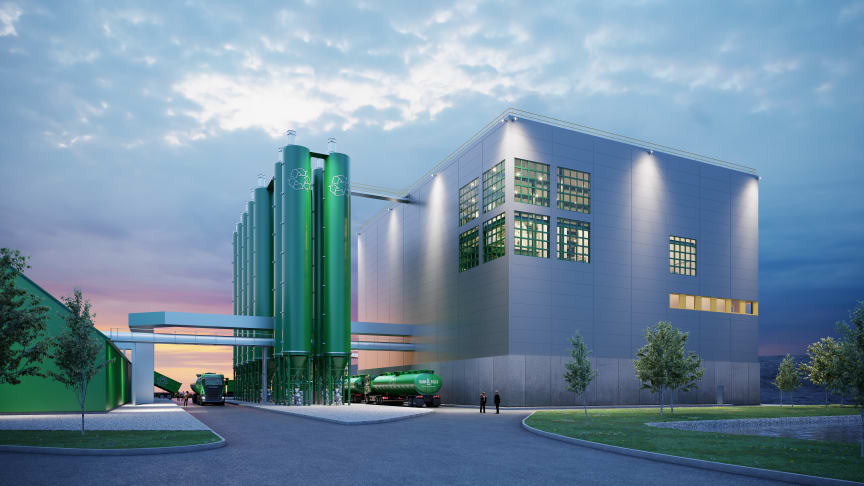Ragn-Sells invests 50 million EUR on resource extraction from fly ash

The environmental company Ragn-Sells is investing more than 50 million EUR in a new plant for the treatment of fly ash from waste incineration using its patented technology Ash2Salt. The new method extracts potassium and other valuable substances from the ash, while large amounts of environmental toxins are removed from the material cycle. The investment is one of the largest ever in Swedish material recycling.
- Many households receive their heat and electricity from modern waste incineration facilities, but the toxic fly ash that is a bi-product to the incineration is a major problem. Now we can offer a circular solution that takes advantage of valuable resources in the ash, while removing the environmental toxins from the material cycle, says Ragn-Sells CEO Lars Lindén.
In Sweden alone, 300,000 tonnes of fly ash are produced each year when energy to provide district heating and electricity is recovered from seven million tonnes of waste. The fly ash, which is formed when the flue gases are cleaned, is a hazardous waste with very high levels of environmental toxins. At the same time, the ash contains valuable resources such as potassium, an important nutrient for mineral fertilizers.
Today, Swedish municipalities send about 150,000 tonnes of fly ash per year to Norway, where it is used to fill an old limestone quarry on the island of Langøya in the Oslo fjord. This means that the valuable substances in the ashes are wasted. Furthermore, within a few years the Langøya quarry will be filled up and closed. With Ash2Salt, a world patent developed by Ragn-Sells' innovation company EasyMining, the valuable resources in the ash can instead be recovered and utilized.
- This investment is one of the largest investments made in circular material recycling in Sweden. Within three years, we will have the capacity to handle half of all the fly ash that energy recovery from waste generates in Sweden, says Mikael Hedström, CEO of Ragn-Sells Treatment & Detox.
The Ash2Salt technology produces three salts that can be sold on the commodity market: potassium chloride, sodium chloride and calcium chloride. Potassium chloride is an important nutrient needed for fertilizer production. Sodium chloride, or common table salt, is an important raw material for many chemical industries, and calcium chloride can be used, for example, for de-icing and dust control on roads.
- Sweden should not send fly ash, which is full of both valuable raw materials and environmental toxins, to old mining holes abroad. Our solution allows Swedish energy producers to have their ashes taken care of in Sweden, in a way that both takes advantage of a number of resources as well as removes the toxins, says Mikael Hedström.
The As2Salt production facility is being built at Ragn-Sells' Högbytorp recycling plant in Bro outside Stockholm. Construction is scheduled to start in mid-April and is estimated to take around two years.
For more information, please contact:
Mikael Hedström, CEO of Ragn-Sells Treatment & Detox, +46 (0)70 927 27 56, mikael.hedstrom@ragnsells.com
Ragn-Sells Media Services, +46 (0)70 927 24 00, medialinjen@ragnsells.com
Facts: Ash2Salt
When flue gases are purified during waste incineration, fly ash is formed and captured. These ashes are a hazardous waste with high levels of heavy metals and chlorides, among other things. In the Ash2Salt process, the fly ash is washed and three commercial salts are extracted from the wash liquid: sodium chloride, potassium chloride and calcium chloride.
The ash residues that remain after treatment with Ash2Salt are no longer a hazardous waste, as the majority of environmental toxins have been separated. Therefore, the residues do not need to be placed on special landfills for hazardous waste, and the total landfill requirement is reduced.
About Ragn-Sells Group
The Ragn-Sells Group is a privately held corporate group, operating companies in four countries.